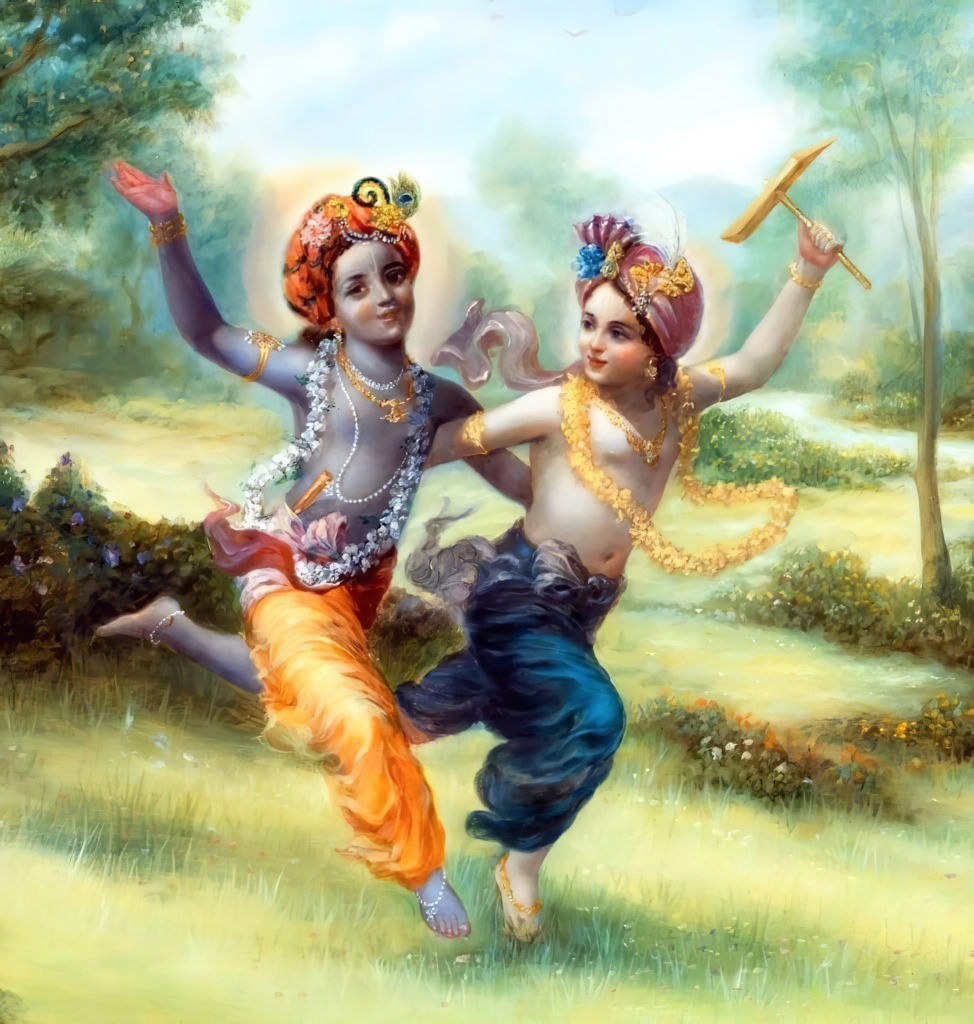Frequently we become angry at people for things they do or fail to do. We disagree with their opinions and dislike their personalities. This usually applies not for general people, but also to other devotees. Even if a devotee performs some valuable service or shows some good qualities, we may still dislike him or her because of what we perceive as negative traits.
The first thing we may consider is that what we perceive as faults may not really be faults, since we tend to judge people according to our own values and according to what we expect from them. If our own values are mistaken we may think others are mistaken in their judgment, when actually the problem starts with us. Similarly, if we have unrealistic or unfair expectations, we may feel betrayed when a person fails to fulfill them, even if it’s not really their fault.
On the other hand, people may really do wrong things, show bad qualities, and be mistaken in their judgment. Even devotees whom we consider advanced may often do shocking things, to say nothing about regular people. What to do about that?
A point we may consider in such situations is the difference between one’s eternal nature as a soul and the conditioned nature we exhibit during conditioned life.

It may sound cliché, but understanding these distinctions is one of the differences between a neophyte and a pure devotee. A neophyte is not able to see the eternal nature at all and, in this way, they consider one soul different from the other based on their current external forms or mental states. He may also not be able to understand that a person’s actions and nature may change, as he progresses in his spiritual path. A pure devotee on the other hand is able to understand this distinction and thus he prefers to pay more attention to people’s eternal nature as eternal servants of Krsna.
There is a great difference between the qualities and actions we show in our current conditioned state and our eternal qualities and actions in our eternal spiritual platform. Just as a sick person shows symptoms he doesn’t exhibit in his normal health state, as a soul progresses in spiritual life these bad qualities diminish and eventually cease.
When we see a devotee committing mistakes or showing a lack of good sense, we should be able to make this distinction between the conditioned nature (the combination of material mind, intelligence, and ego, influenced by the three modes, which is factually the one committing such mistakes) and the real individual (the soul in his original nature) that remain pure despite the contamination around it. Just like a cloud dissipates after a rain, or a disease disappears after being treated, the conditioned nature of a person dissipates as he progresses in Krsna Consciousness.
Krsna explains this point in the Bhagavad-Gita (9.30) where He says: “Even if one commits the most abominable action, if he is engaged in devotional service he is to be considered saintly because he is properly situated in his determination.”
In his Gitamrta, Srila Visvanatha Chakravarti Thakura explains that when a devotee commits an abominable act, his piety continues to exist in a subtle form, and he returns to a saintly state after returning to his practice of Krsna Consciousness. In other words, a devotee may show traces of material contamination if he again commits sins, but he can return to his original saintly position when he realizes his mistake and goes back to his spiritual practice.
In a broader perspective, this actually applies to every conditioned soul, since our conditioned nature is just a temporary cover to our original spiritual nature.
Anyone can restore his original, pure identity by the practice of Krsna Consciousness. Therefore, although we still need to consider people’s conditioned natures in our daily dealings, discriminating between people who are honest or not, reliable or not, etc. we should also keep in mind that whatever faults people show due to the influence of the three modes of material nature are not permanent faults, but just a consequence of their conditioned nature, and that such faults tend to disappear as a result of spiritual practice. At the end of the day, that’s the factor we should focus on.
In his memories, Tamal Krishna Goswami shares that once, during a cold morning walk, Srila Prabhupada started smacking the frozen puddles on the way. He would stop, smack a puddle, walk on, and smack the next one again, making it shatter. When asked why he was doing that, Srila Prabhupada answered: “Because this is not the natural condition of the water. Similarly, it is not our nature to be in Maya. We must break the back of the material energy. To be in Maya is not our natural condition.”
By smacking the puddles, Srila Prabhupada was illustrating that our mission in spreading Krsna Consciousness is to bring the soul back to his natural condition.
